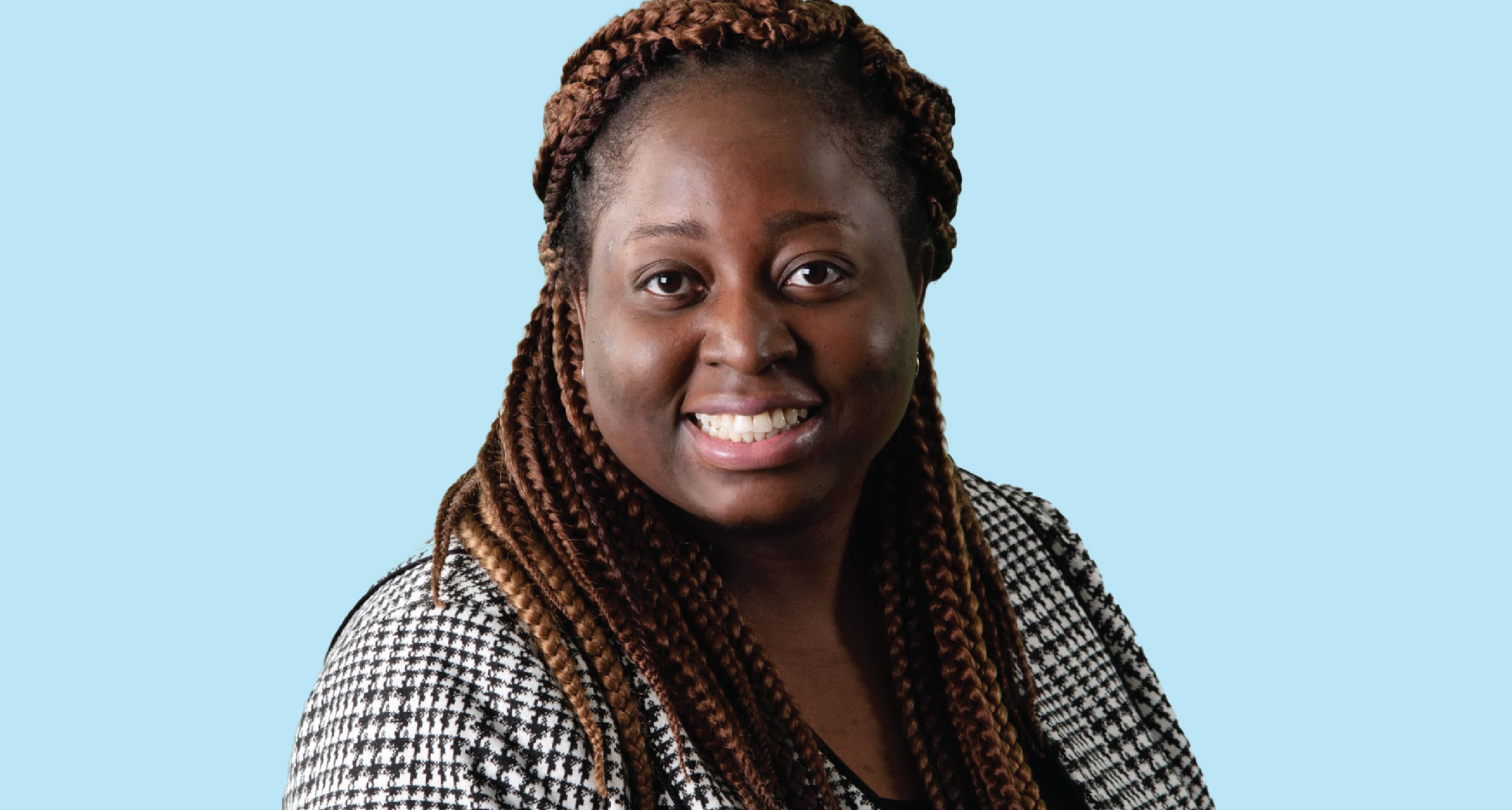The nurse-turned-researcher taking action to inform vital standards for Black youth mental health care in Canada

Across different racialized communities in Canada, there are consistent themes in how youth experience mental health and the mental health system. Language barriers, disadvantages in insurance or work provisions, and limited cultural understanding through underrepresentation amongst service providers are some. Of course, there are circumstances unique to individual communities as well.
“Intersecting influences of gender and masculinity, anti-Black racism, the re-traumatization from violence related to the Black Lives Matter movement, all this has an influence and impact on Black youths in Canada,” says Dr. Bukola Salami, a professor at the University of Calgary’s Cumming School of Medicine.
“For Black youth, they're often guilty before they're proven innocent. They go somewhere and frequently have to demonstrate they're innocent. These kinds of broader social determinants affect their mental health.”
As a student, Yawa Idi frequently collaborated with Dr. Salami. Idi now oversees an Edmonton-based clinic of Black mental health professionals operated by the Africa Centre. The non-profit is a frequent knowledge user and partnering organization of Dr. Salami.
“Culturally-sensitive care is key,” Idi says.
For a lot of Black youth, having to code switch is psychologically taxing. You don't want to have to completely alter your mannerisms and your dialogue just to make it palatable to whoever's serving you.”
Microaggressions and discrimination are big pieces too, Idi adds, especially for Black men.
“When friends or other people find out that a Black man or youth is seeking therapy, they might ask 'What are you going to therapy for? You're a man' or 'You're a boy'.”
Dr. Salami emphasizes the mental health experiences of Black youth should not be over-generalized. Individual experiences are influenced by religious, cultural, regional, local, familial and other unique circumstances.
“From the research I have done so far, I know that oftentimes we tend to lump all Black people together,” she says, citing evidence of increased mental health issues among people of Caribbean and East African descent as one example of regional differences.
“Additionally, the perception of mental health amongst refugee parents tends to be different. One youth I spoke to noted that a lot of parents are used to being in ‘fight or flight’ mode because of experiences related to trauma. Then they come to Canada and have a youth saying they have mental health challenges, and their parents say 'Well, you have food on your table, you cannot have mental health challenges.'”
Idi highlights familial relationships as a key factor for Black youth navigating the mental health system in Canada.
“For a lot of black youth, sometimes it's not just an individual choice. You might also factor in your family in your decision to seek support,” she explains. “You're taking them into consideration: ‘What will they think? Or do I even want them to find out?’”
A youth-forward approach to advancing service equity
Dr. Salami, who moved from Nigeria at age 16 and eventually became a pediatric oncology nurse, has dedicated much of her recent career to research projects on barriers to equitable mental health services for Black Canadians and Black youth. This includes the ongoing Standards for Black Youth Mental Health Services project funded through CIHR-INMHA’s Catalyst Grant: Standards for Children and Youth Mental Health Services, which sees Dr. Salami lead a team of researchers, service providers, policy makers and youth in identifying, mapping and improving mental health standards.
The team recently completed a scoping review to assess what global standards currently exist for the delivery of mental health services to both Black youth and youth in general. Only three of the references reviewed provided specific recommendations for the Black population, emphasizing a significant need to consider ethnicity in the development of equitable guidelines and standards.
The project’s next stage involves focus groups of Black youth aged 16-25. These will be conducted virtually across Canada with a regionally proportionate selection from a pool of 800 candidates who consented to participation during earlier projects. Findings are set to be disseminated via presentations to conferences and policy makers, journal publications and policy practice briefs.
“We have Black researchers involved, and we're hoping to set up a committee of Black stakeholders to support and inform some of the work that the committee is doing in terms of standards,” Dr. Salami notes.
Partnering agencies on the project include Black Physicians of Canada and the Public Health Agency of Canada through their Mental Health of Black Canadians initiative. There is also a significant degree of direct youth participation.
“We have Black youths informing the project as advisory committee members as we want to ensure an infusion of youth perspectives,” Dr. Salami explains. She’s also working with Black high school students engaged in an environmental scan, with a total of about 15 youth engaged in the project.
Idi, who was a research assistant for Dr. Salami as a University of Alberta undergrad, notes youth leadership as one of Dr. Salami’s strengths.
“She gives youth considerable agency while providing a lot of mentorship and feedback,” she says.
“Her ability to put agency back into the communities that she's researching is something that is really admirable.”
The dissemination of knowledge and publication of knowledge products directly related to the current Standards for Black Youth Mental Health Services project is expected to occur throughout 2024.
That won’t be the end of Dr. Salami’s engagement in standards for Black youth mental health though. It’s become the focus of her career, and she intends to continue to contribute to the improvement of standards nationally and help proliferate their implementation across the globe.
“Black youth are resilient: they’ll talk about their negative experiences but then say, 'but someone had it worse than me' or 'time heals all wounds',” she says.
“I look forward to a brighter future where not only are the mental health needs of Black communities in Canada addressed, but so too are the social determinants that are intertwined.”
- Date modified: